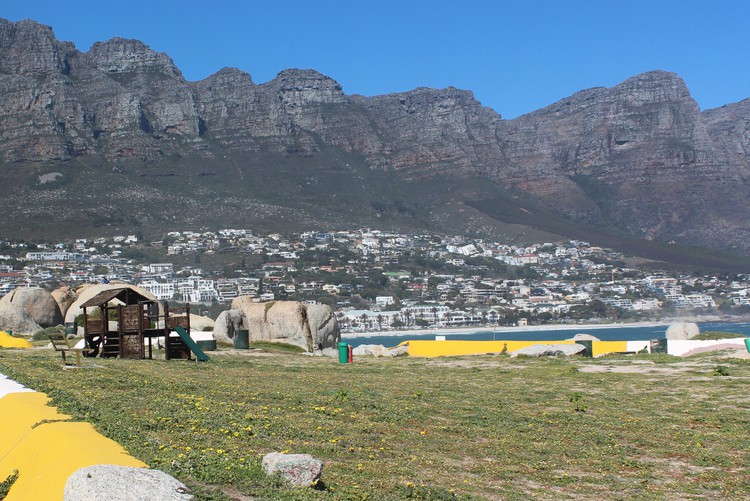Maiden’s Cove development under fire
The matter is now before the courts
A R1.5 billion plan by the City of Cape Town to develop Maiden’s Cove — a scenic headland and beach between Clifton Fourth Beach and Glen Beach in Camps Bay — is facing a court challenge from city residents.
The development of the cove area, devised in 2015, includes plans for 52 residential homes, a boutique hotel, retail and restaurant spaces, and a parking garage for 700 vehicles.
Maiden’s Cove remains a special place for many people from the Bo-Kaap and Cape Flats, who were forbidden to use the beaches of Clifton and Camps Bay during apartheid.
The Clifton Precinct Development Plan has been met with outrage, expressed in affidavits from the Bo-Kaap Civic Association and community activists. They say they were left in the dark and excluded from public consultations.
Maiden’s Cove for All (MCA), a nonprofit dedicated to maintaining public access to the cove, was permitted by the Western Cape High Court on 17 July to join as a fifth applicant in the court battle. MCA will also present a new process that involves the public from the beginning to decide what to do with Maiden’s Cove.
Applicants in the case include the Bungalow Owners Association (BOA), Attorney and Member of the Bungalow Owners’ Association Billy Gundelfinger, and residents of Clifton Mark John Willcox and Gavin Howard Varejes.
The respondents are (1) the City of Cape Town, (2) the Chairperson of Immovable Property Adjudication Committee of the City of Cape Town, (3) Heritage Western Cape, (4) South African Heritage Resources Agency, (5) National Minister of Environmental Affairs, (6) South African National Parks, and (7) the shareholders of a private development company called K2015298271.
MCA says the City has no legal authority to impose the plan, since the Constitution and many statutes deem the land a public trust and a protected open coastal reserve. The organisation argues that the development strays from a more equal society by benefiting affluent people and limiting opportunity for the majority of people.
Vanessa September, chairperson of MCA, said the City is failing its constitutional duty “to engage meaningfully with those most directly affected by the proposed development, and to heal the divisions of the past by overcoming rather than intensifying racial spatial segmentation of the city”.
“They [the Bo-Kaap and Cape Flats communities] will lose their large present parking area, and instead of having the mountain-side behind them, will find their picnic space overlooked by rich, privileged people in their newly built upmarket homes,” she said.
September recalls how she sometimes brought her mother, who had arthritic knees, to Maiden’s Cove because it was a short distance to the water. Later in life, she brought her son to play in the pools. But now, her lifelong adventures to Maiden’s Cove might come to an end.
Former Constitutional Court judge Albie Sachs, writing in the Daily Maverick, says that the Constitution and law places “insurmountable barriers to the realisation of the council’s project” as the council is legally obliged to preserve the area as a public trust (and prohibited from commercial sale on a space beloved by Capetonians); the council cannot devise a commercial plan and then ask for comment; consultations with the public were inadequate; the law on coastal management says public authorities must enhance rather than restrict public access to the ocean; and the development will further divide the city along historical lines of prejudice.
Councillor Stuart Diamond, the Mayoral Committee Member for Assets and Facilities Management, would not comment while the matter is still before the court.
The City has requested more time to assess the new issues that have been raised by MCA. It has asked for indulgence until 30 November in order to respond to the papers. The Judge President will look at the Court Roll and decide when the case can be held.
“It appears extremely unlikely that the matter will be heard this year,” said September.
MCA will host a community gathering at Maiden’s Cove on 24 September. It has encouraged people to come and braai, picnic, and share their stories about Maiden’s Cove.
Next: Sea Point company’s owners in legal trouble for failing to pay provident fund
Previous: Peace monument now a drinking spot
Letters
Dear Editor
Thank you for this article highlighting the tragedy of the city attempting to sell off our public land at Maiden's Cove to private developers. One thing that might have escaped public attention, is the fact, that all the sewage from Camps Bay which is disposed at sea, (some 1,5 Olympic swimming pools of it daily) emerges a mere 700m from Maiden's Cove.
Whilst activists like myself would like to see absolutely no sewage at all pumped into the sea, the fact that the City allows it to be pumped just 700m from Maiden's Cove, is an artifact from Apartheid. Back in the early 70's when the sewage pump station was built, clearly no one cared about the proximity of the outfall to the only non-white beach on the Atlantic Seaboard.
Indeed, even the most conservative engineering literature prescribes a distance of over a kilometer (but usually 3,5km) for the supposed 'safe' disposal of sewage at sea. This clearly isn't the case here, even by the City's own survey photos shows the distance as just 700m.
I invite you to view our December 2016 video explaining this.
https://www.youtube.com/watch?v=tEh5JpoH9qo
The video has been vigorously attacked by the city, to the point of them threatening to sue us to remove it from youtube, but one fact they have never, and can never deny, is the intolerable 700 meter distance from the sewage outfall to Maiden's Cove.
© 2018 GroundUp.
This article is licensed under a Creative Commons Attribution-NoDerivatives 4.0 International License.
You may republish this article, so long as you credit the authors and GroundUp, and do not change the text. Please include a link back to the original article.



